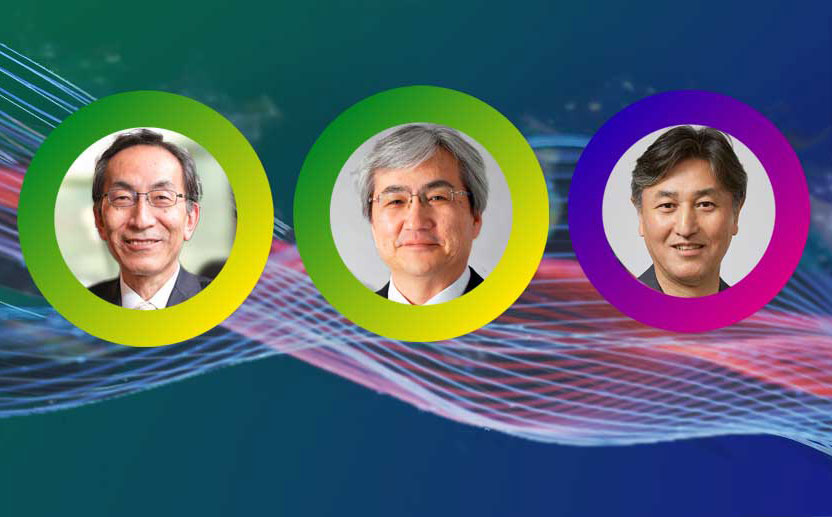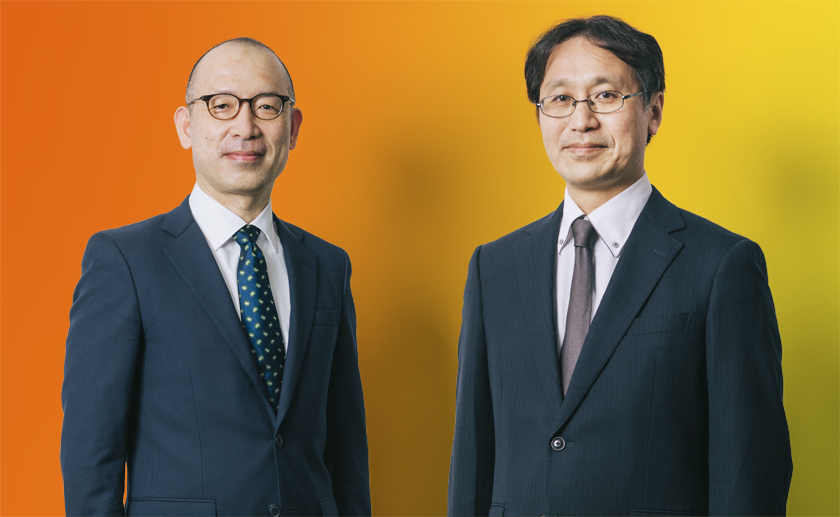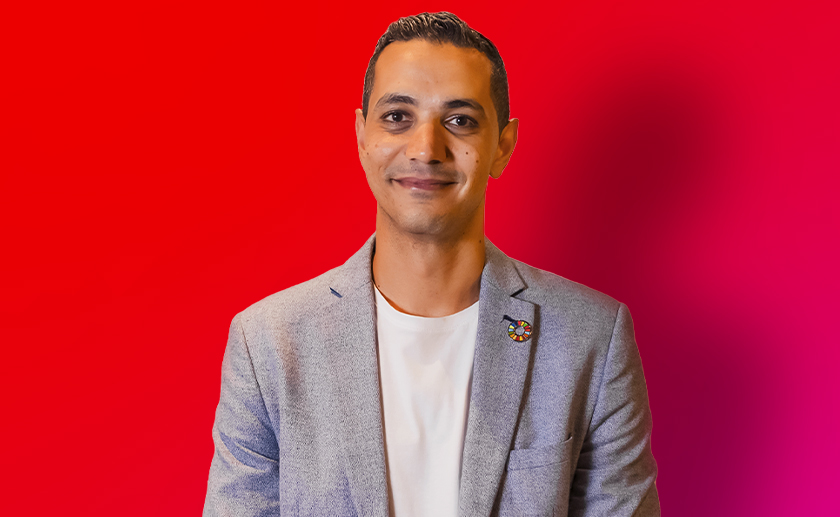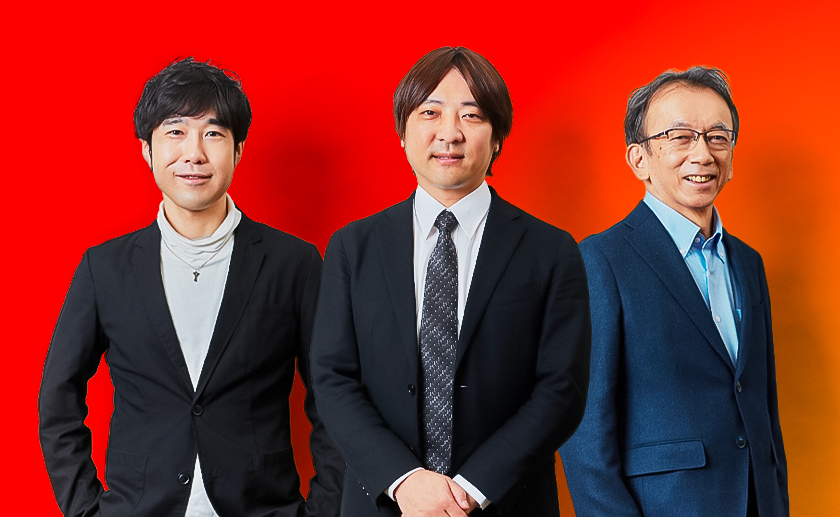
Half of the Japanese population is affected by cancer in their lifetime
One-in-two people in Japan will suffer from cancer during their lifetime. In 2017, 373,334 people died from the disease, making it Japan’s leading cause of death*. This makes cancer one of the country’s most pressing issues in terms of health.
Cancer works by affecting the cells which make up the human body. Normal cells have a central part called a nucleus that contains chromosomes with genes. The genetic information contained in the genes is known as the genome. If this genome is damaged in some way, the cell mutates and stops functioning normally. These mutated cells are cancer.
Cancerous cells are different from normal cells because they can multiply on their own, ignoring orders issued from the body telling them to stop. As cancer cells continue to multiply, they can damage important tissues around them. These cells can also move through blood vessels to cancer-free parts of the body in order to take the nutrients away from healthy tissues. This causes the body to weaken which poses an extremely severe risk to the body.
There are many different causes for cancer, but lifestyle-related factors (such as smoking, drinking alcohol, dietary choices, stress, and poor exercise), aging, and viral infection account for a large percentage of cases: 53.3% among men and 27.8% among women. Smoking is particularly recognized as a major cause of cancer**.
*:Ministry of Health, Labour and Welfare, "Summary of 2017 Vital Statistics (Definite Numbers)"
https://www.mhlw.go.jp/toukei/saikin/hw/jinkou/kakutei17/index.html(Japanese)
**:Cancer Information Service, National Cancer Center, "Causes of the Onset of Cancer"
https://ganjoho.jp/public/pre_scr/cause_prevention/factor.html(Japanese)
Preparing treatment plans based on mutated genes faster
There are many different methods for treating cancer, including surgical removal of cancerous tumors as well as chemotherapy and radiation therapy. Cancer genome medicine has gained significant attention recently. It’s one of the methods used to improve the accuracy of cancer treatment in areas such as operation, anticancer drug, and radiation.
Cancer genomic medicine involves predicting each cancer patient's physical makeup, the condition of their disease, as well as drug response and side effects. This is then used to conduct the optimal form of treatment. In other words, this treatment does not focus on the organ where the cancer has proliferated. Rather, it works to diagnose and treat the mutated genes that caused the cancer in the first place.
In cancer genomic medicine, medical staff take a sample from the patient and use a sequencer to extract genetic information in a process called "cancer gene panel testing". Cancer gene panel testing is made up of two processes: the sequencing process and the sequence alignment process, both need to take place in order to extract the genetic information. After this, medical specialists prepare treatment plans and hold conferences to decide the direction to treatment should take (Figure 1). In June 2019 in Japan, health insurance began to cover cancer gene panel testing, and industry experts anticipate an increasing number of patients to seek further testing.

(Figure 1) The cancer gene panel testing process
In order to provide the ideal form of treatment for each patient, medical experts need to search for relevant articles from medical research databases to find past cases. This work takes a significant amount of time. Therefore, there is an urgent need to develop technology that can help experts diagnose diseases and choose treatment methods more quickly and accurately.
In light of these issues, Fujitsu Laboratories began engaging in a wide range of AI initiatives in relation to cancer genomic medicine.
(1) Verification trials with IMSUT successfully cut time spent preparing treatment plans for genetic mutations by more than 50%
Fujitsu Laboratories has conducted joint research with the Institute of Medical Science at the University of Tokyo (IMSUT) since April 2018. As part of this we have successfully developed and verified AI technology to improve the efficiency of cancer genomic medicine. We demonstrated the effectiveness of this technology through verification trials at IMSUT.
One challenge for cancer genomic medicine is the process of searching for cases from medical research databases. These verification trials featured a combination of Fujitsu's AI technology for language processing, which identifies terms and phrases used in research papers from context, together with IMSUT's insight. The new technology automatically extracted 2.4 million relationships between term and phrase pairs from 860,000 medical papers to construct a knowledge graph database. This database mapped the relationship between gene mutations and therapeutic drugs, and the relationship between therapeutic drugs and their effects.
In the verification trials, we used this knowledge graph to find past cases of treatments for acute myeloid leukemia. Our technology reduced the number of papers that medical experts needed to check, and hence reduced the need for papers to be read in full. This successfully reduced the amount of time spent preparing treatment plans (Figure 2). Traditionally, preparation for genetic mutation plans took about 30 minutes per case, but we reduced this time by more than half in the trials. At present, it is estimated that more than 12,000 people suffer from leukemia annually in Japan. If this new technology is used in genomic medical treatments for all these patients, the 6,000 hours of examination work normally required for experts can be cut to 3,000 hours or less.
For this verification experiment, a database developed by Fujitsu Limited in cooperation with the Japan Agency for Medical Research and Development as part of the "Program for an Integrated Database of Clinical and Genomic Information"***,**** is used as part of the knowledge graph.
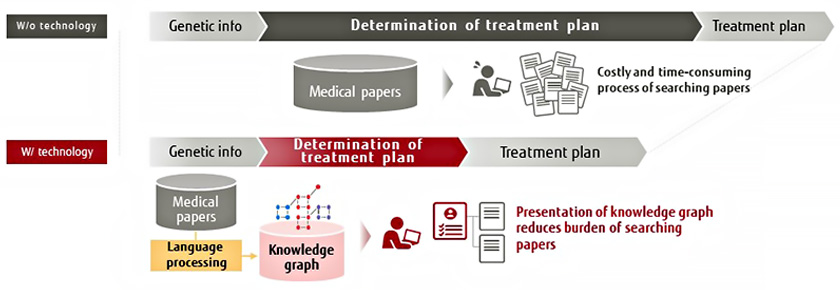
(Figure 2) Using the knowledge graph to achieve more efficient planning treatments using compactly organized information
***: A program based on the interim report of the Council for Promotion of Genome Medicine Implementation, to verify the relationship between genome information and disease specificity and clinical characteristics, to develop a database that comprehensively handles clinical information and genomic information that can be used for clinical and research purposes, and to promote advanced research and development that makes use of the research infrastructure.
****: AMED Grant Number: JP20kk0205013
(2) Streamlining cancer genomic information analysis with Aichi Cancer Center
Fujitsu Laboratories and Aichi Cancer Center entered into a comprehensive cooperative research agreement in November 2019. This research seeks to leverage AI technology to improve the efficiency of cancer genome information analysis and contribute to advances in the field.
This initiative will use the AI technology developed by Fujitsu Laboratories for streamlining cancer genomic medicine with the genomic data and medical records held by Aichi Cancer Center. One main goal of this research is to establish technology for boosting efficiency in analyzing results in cancer gene panel testing. The second main goal is to enhance functions that can identify the relationship between genetic mutations in patients and diseases.
Going forward, Fujitsu Laboratories will construct databases of clinical information and genomic profiles using AI technology. It will also develop new AI technology to support diagnosis, the selection of treatment methods, and knowledge discovery regarding novel forms of therapy. Aichi Cancer Center will provide patient-specific results from cancer gene panel testing as well as medical records. It will also offer information on how to interpret and review gene test results from cancer cases, and how to select treatments for various types of cancer. Finally, it will verify the newly developed AI technology.
Fujitsu Laboratories and Aichi Cancer Center will apply the results of the joint research to hospitals in the Tokai region. In addition, we will collect a diverse range of cancer genome data from medical institutions to build and expand reference databases. Through this, we aim to help achieve higher accuracy and medical advancements.
There are high expectations for cancer genomic medicine. Going forward, AI technology will see further progress and data will continue to accumulate on medical cases and treatments. Industry experts anticipate this progress will lead to increased precision in treating cancer patients with genomic medicine. Fujitsu will continue these efforts in medicine through developing technology that implements AI.



